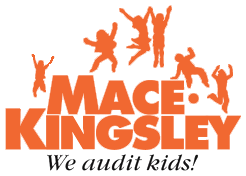Ron Says…
” I’ve taken it awfully easy on my kids on processing—awfully easy. I run an entirely different system. I’ve noticed some various behavior patterns in my life and usually use those.
” And that is to say, I always treat my children with courtesy, particularly in front of one another. … As a result, these kids are better and better friends with one another. Well, this is very fortuitous because, actually, their—most association is with one another. And they are very polite. They’re very polite to one another. They’re very polite to people quite ordinarily. If you’ve ever met them, they’re very interesting from this standpoint. Well, that is merely because one is polite to them, see? You’re just counting on the reaction.
” Now, this is pretty good—merely establishing patterns that they’re happy with, see? Now, that’s processing in itself. That’s processing through livingness and setting some sort of a pattern where they can get along with each other. Now, they are in an interesting state of mind with regard to processing. They will immediately show up if they have hurt themselves. Now, all kids come around and say, “Mama, I’ve cut my finger,” or something of this sort, and, “Kiss it and make it well.” Well, this manifestation is a lot different with these three kids. They’ll come in to myself at once, you see, and get an assist. And they’re perfectly happy with it, and the assists are working on them, by the way, faster and faster. So that sometimes it’s only a five- or six-command assist, don’t you see? And they’re perfectly happy then; they know that the score is there.
” We very carefully open up and close sessions and bridge commands, by the way—much more carefully than I do with one of you guys. All right. Now, raising children with the idea that something can be done about it, you see? Now, somewhere up along the line they ought to kind of start to get Clear. They see the things in the usual family environment that cause trouble, you see? They see these things being handled, so they get the idea that these things can be handled, don’t you see? You’re getting another viewpoint entirely. Now, that viewpoint, all by itself makes another breed of cat than a Clear. It makes another breed of cat than anything else. It has an effective attitude toward existence. Now, I think, just as I’ve recounted it, simply because I know these kids better than other people’s kids—but I know other Scientologist’s kids pretty well, too. They always usually ask for me if they come about someplace. They want to see Ron. And they want to come in and give me a smile or something of the sort. And I have a good look at them as they go along, you know? And I see them over long periods of time. I see them sporadically, you know? And most of them are doing just fine. But I think they have a different viewpoint than children have ever had before. I think, by the time they get to be about twelve—ten or twelve or something like this, you could just whomp into them and clear them up, probably, in a few hours. And that would be the end of that—providing you hadn’t made them allergic to processing by forcing processing on them, you see? And providing you had run good 8-C on them.
“Fascinating, the handling of kids, because you’re handling a tremendous amount of experience. And about the best thing you can possibly do is set up a model for them—a model of positiveness, a model of politeness. And you set up a good model for them, why, you’ve got it made.”
L. Ron Hubbard
Excerpted from the lecture “E-Meter: Identification and Association: Question and Answer Period” delivered on 24 January 1958. This lecture may be found in 19th American ACC lectures.
